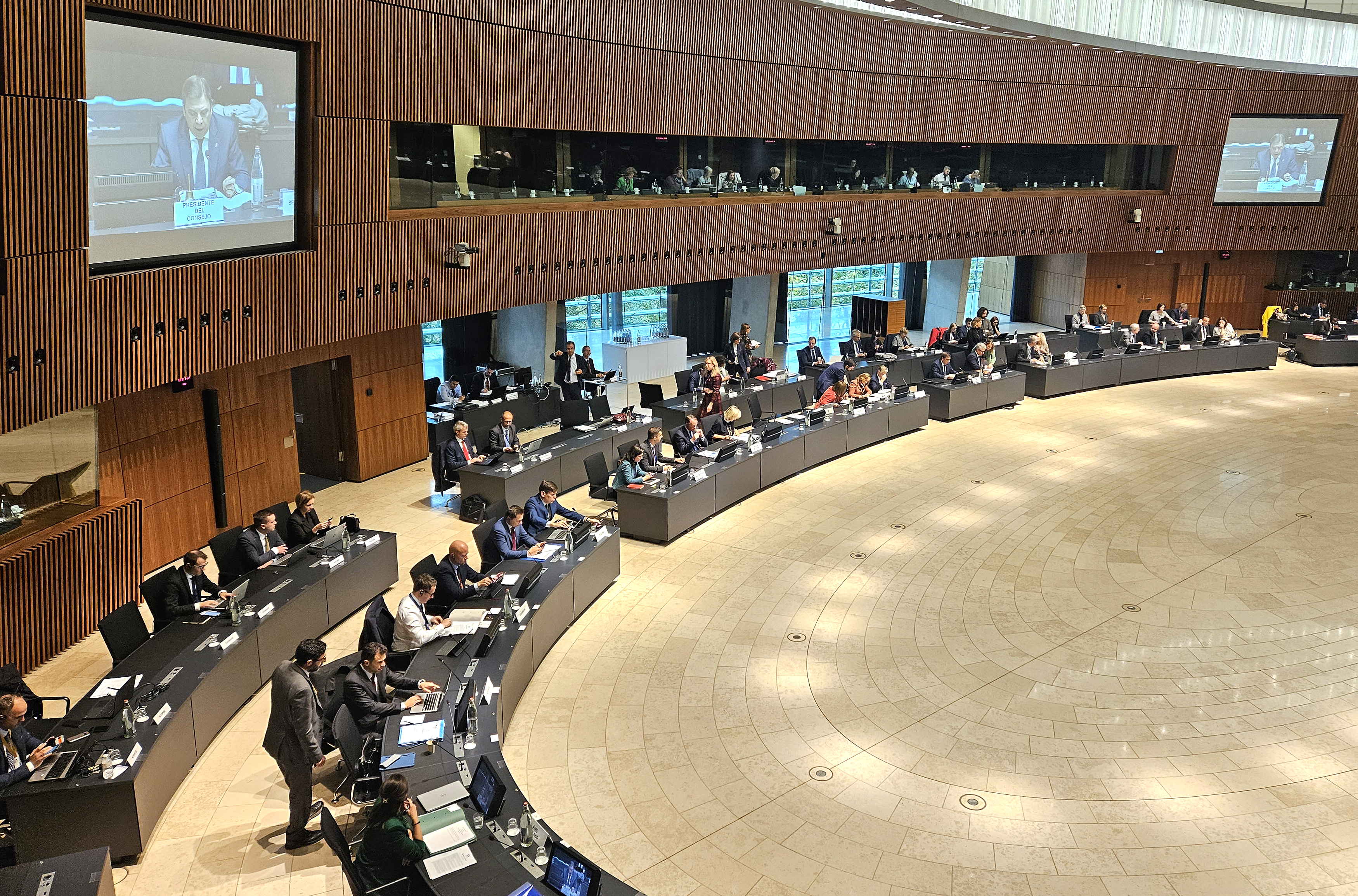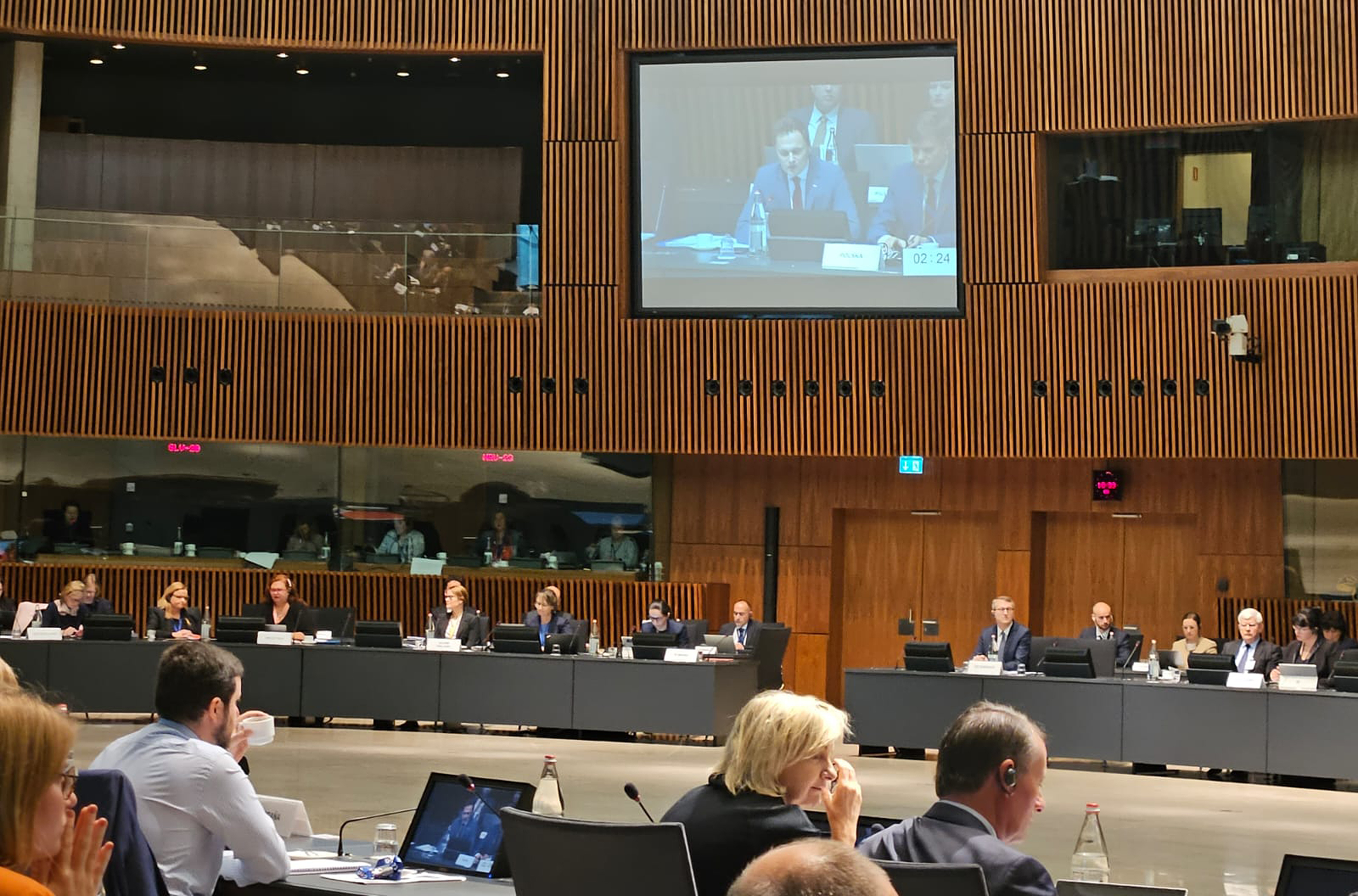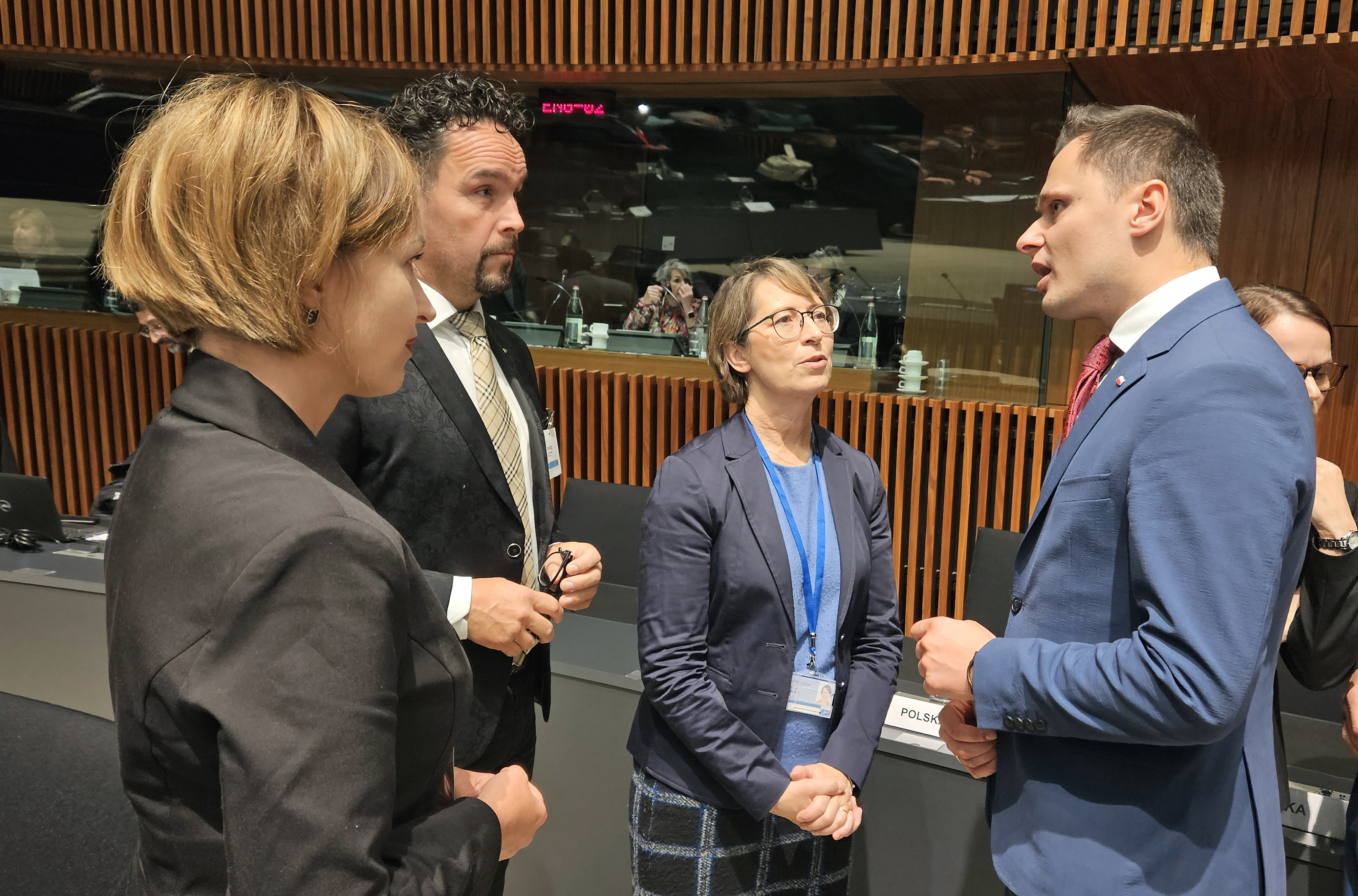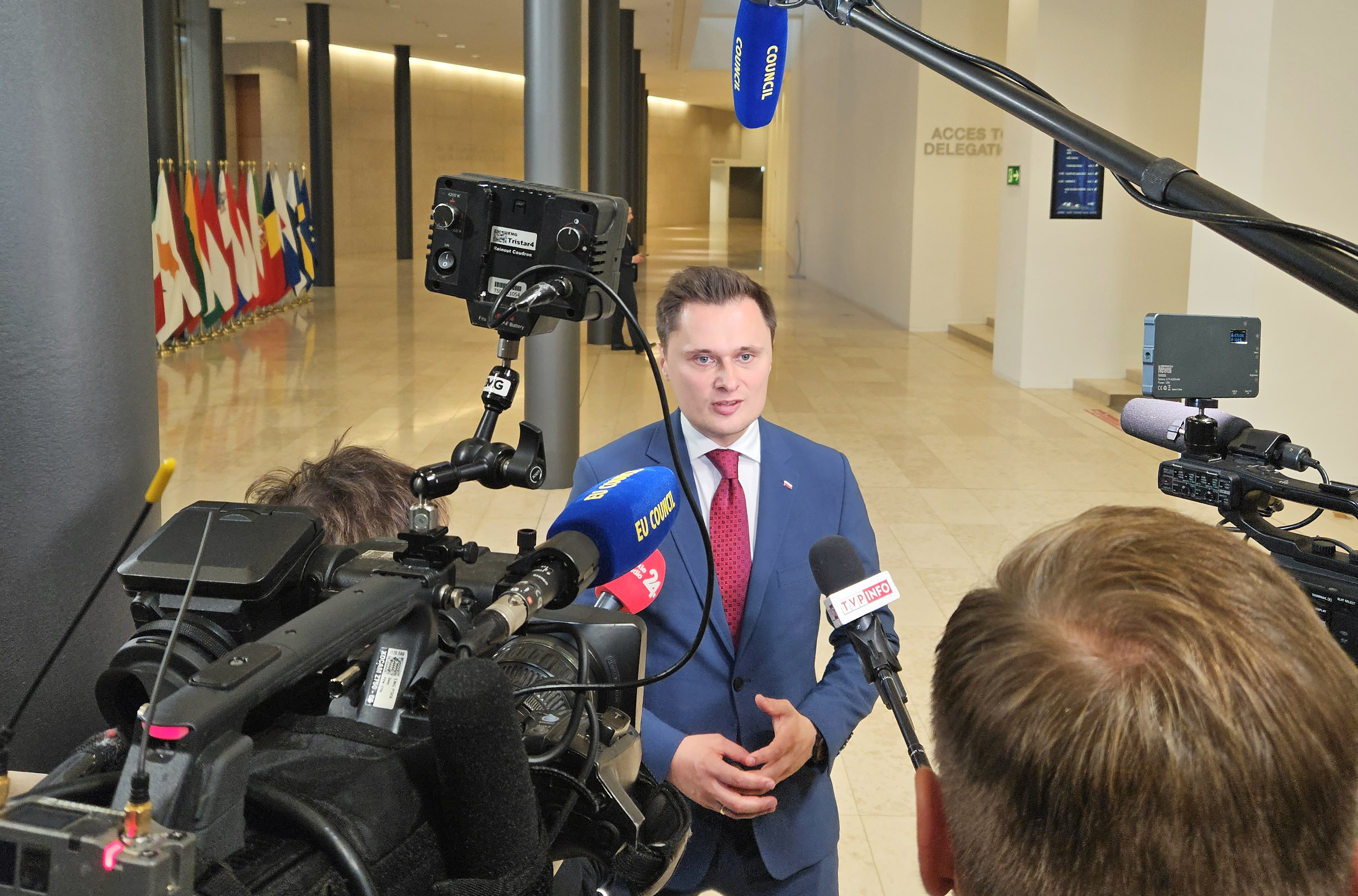A political agreement was reached on the fishing opportunities in the Baltic Sea
24.10.2023
The Council Regulation fixing the fishing opportunities in the Baltic Sea for 2024 was the main subject of the discussion during the meeting of the Agriculture and Fisheries (AGRIFISH) Council on 23-24 October 2023.

The Polish delegation was headed by Mr. Krzysztof Ciecióra, Undersecretary of State at the Ministry of Agriculture and Rural Development.
The Council Regulation fixing the fishing opportunities in the Baltic Sea for 2024
“19 Member States of the European Union supported a joint position of the Baltic Sea states on the fishing opportunities for 2024,” Undersecretary of State Krzysztof Ciecióra informed after the meeting of the AGRIFISH Council.
The wording of the provisions proposed by the EC was not acceptable not only to the Baltic Sea states, but also to 11 other countries which have no direct fishing interests in the Baltic Sea.
In accordance with the Regulation adopted, the following EU total allowable catches (TACs) were fixed in the Baltic Sea for 2024.
|
Species |
TACs (for EU) |
|
Cod (subdivisions 22-24)* |
340 tonnes |
|
Cod (subdivisions 25-32)* |
595 tonnes |
|
Herring (subdivisions 22-24)* |
788 tonnes |
|
Herring (subdivisions 25-29, |
40 368 tonnes |
|
Plaice (subdivisions 22-32) |
11 313 tonnes |
|
Salmon (subdivisions 22-31)* |
50 000 tonnes |
|
Sprat (subdivisions 22-32) |
201 000 tonnes |
*TACs set for by-catches only
Poland’s negotiation priorities were met
The compromise legal act met Poland’s negotiation priorities.
- The Council of the EU did not consent to the imposition of a ban on targeted fishing for central herring, The TAC which had originally been proposed by the EC was increased from 28,00 tonnes to about 42,000 tonnes (17%).
- The Council did not consent, either, to a reduction in the TAC for sprat as proposed by the EC; as a result, the TAC was increased by 13% compared with the EC proposal.
A success of the Polish Presidency of BALTFISH
In the course of both the debate and the trilateral talks on the fishing opportunities in the Baltic Sea for 2024, the Polish Deputy Minister of Agriculture informed about the compromise reached by BALTFISH.
The work of the BALTFISH states demonstrates the enormous importance of regionalisation for taking decisions on fishing opportunities. It is exactly the regional cooperation of the Member States as part of BALTFISH that enables the adoption of the best measures for the particular fish stocks. The compromise reached was a large success of Poland which now holds the Presidency of BALTFISH.
The Common Fisheries Policy based on scientific advice
Undersecretary of State Krzysztof Ciecióra stressed that scientific advice was one of the most important foundations for taking decisions on the levels of fishing opportunities in the Baltic Sea. It should be used appropriately, while taking into account the objectives of the Common Fisheries Policy.
“There is a need for stable interpretation of the provisions of the Multiannual Plan (MAP). If we change every year the legal basis applied to fix the fishing opportunities, we will not build fishermen’s trust in EU law,” Deputy Minister Krzysztof Ciecióra pointed out.
The protection of fish stocks and the socioeconomic aspects
Undersecretary of State Krzysztof Ciecióra noted that the improvement of the condition of the fish stocks in the Baltic Sea was an extremely significant challenge for Poland in the coming years. However, the actions taken by the European Union to improve the situation of the fish stocks in the Baltic Sea need to take into account the impact which they will have on the fishermen communities in the Baltic Sea states.
The protection of fish stocks should always be accompanied by consideration of the socioeconomic aspects. The bans on targeted fishing for both cod stocks and those of Western herring or salmon which are now in effect have a huge effect on the situation of persons who depend on fisheries. It is important to ensure that decisions on the total allowable catches (TACs) do not worsen the situation of these persons, especially when it is not necessary.
The Deputy Minister also pointed out Russia’s operations. The catch limits which the European Union imposes on itself increase Russia’s fishing capacity and this can have a significant effect on the situation of fish stocks.
The head of the Polish delegation also pointed out that the total allowable catches (TACs) should be fixed in compliance with the provisions of the Common Fisheries Policy, taking into account the available scientific opinions and considering the environmental and socioeconomic aspects.
“We do not consent to the ban proposed by the European Commission on fishing for central herring and, indirectly, sprat in the Baltic Sea. As a result of the imposition of such a ban, Polish fishermen’s families will lose their livelihoods from day to day,” Krzysztof Ciecióra stressed.





